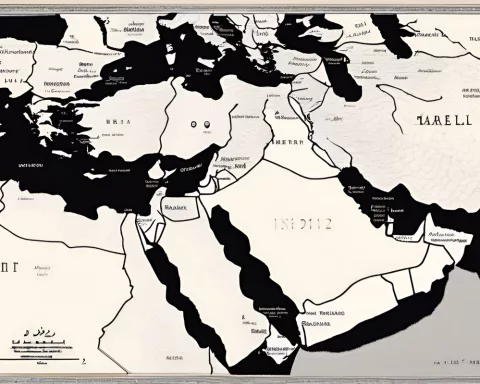Cape Town experienced a widespread power outage caused by theft and vandalism of Eskom’s infrastructure, resulting in delays in restoration efforts. The city’s allocation of electricity is governed by national legislation, making it challenging to solve the issue. The blackout originated from unplanned faults, leaving residents without power for over 80 hours and prompting local protests. Despite the power cut, life in Cape Town continues to thrive, with extraordinary car deals and a dynamic spirit prevalent.
Cape Town experiences a massive power outage due to vandalism and theft of Eskom’s infrastructure, resulting in substantial delays in restoration efforts. The allocation of electricity within the city is governed by national legislation, causing constraints in solving the issue. The blackout appeared to originate from unplanned faults, leaving residents without power for over 80 hours and prompting local protests. Despite the power cut, life in Cape Town continues to thrive.
Cape Town Experiences Massive Power Outage
Located in the heart of South Africa, Cape Town is a city celebrated for its lively culture and breathtaking landscapes. However, recently, the city experienced an expansive blackout particularly affecting the Elsies River region. This lengthy power outage, extending beyond 80 hours, instigated a surge of local protests. Beverly van Reenen, Cape Town’s Mayco member responsible for energy, has appealed for calm during these turbulent times, calling on citizens to refrain from threatening or intimidating city officials and Eskom teams striving to remedy the situation.
The Cause and Initial Response
This significant power cut, suspected to be mainly caused by vandalism and theft of Eskom’s infrastructure, resulted in substantial delays in restoration efforts. However, Eskom was able to recover power to about 60% of the affected area by the next day. Van Reenen ensured the residents that the city would continue to monitor Eskom’s restoration progress closely, recognizing the severe inconvenience the residents had to bear.
However, Van Reenen also highlighted the city’s constraints in solving the issue. Eskom, a national body, does not operate under the city’s jurisdiction. The allocation of electricity within the city is governed not by municipal officials, but national legislation. Certain regions of Cape Town receive their power directly from Eskom, while the city itself provides others.
The Underlying Legislation and Distribution Issues
The current arrangement adheres to the National Electricity Regulation Act, upheld by the National Energy Regulator of South Africa (NERSA). This Act delineates the distribution licenses, determining the respective supply areas for Eskom and the city within Cape Town.
The Unforeseen Consequences of the Power Outage
In the midst of this power crisis, an unexpected repercussion was noted. The blackout appeared to originate from ‘unplanned faults.’ Pranesha Govender, a resident of Cravenby, shared her experience. The power was restored early Tuesday morning, only to fail again by midday.
Eskom then decided to enact 12-hour rotations between Cravenby and other District 13 areas. However, Govender’s encounter with Eskom’s service was far from satisfactory. Govender blamed the repeated power outages on the Belhar substation, accusing Eskom of poor maintenance.
This marked the fourth time the substation had encountered a problem, leaving the residents without power for the longest period yet – over 80 hours. Despite Eskom’s promise of power restoration by Wednesday, many residents expressed their disappointment on social media, complaining about ongoing power disruptions and inconsistency.
Life in Cape Town Amidst the Crisis
Despite grappling with the power cut, life in Cape Town continues to thrive. The city’s dynamic spirit is evident in the extraordinary deals on cars for under R100,000, enabling locals and tourists to carry on exploring the city and its environs. Meanwhile, the residents of the Elsies River area are anxiously awaiting the full restoration of power, praying for prompt action and a brighter tomorrow.
What caused the power outage in Cape Town?
The power outage in Cape Town was caused by theft and vandalism of Eskom’s infrastructure.
How long did the power outage last?
The power outage lasted over 80 hours in some areas.
What is the response from the city officials?
Cape Town’s Mayco member responsible for energy, Beverly van Reenen, has appealed for calm during these turbulent times, calling on citizens to refrain from threatening or intimidating city officials and Eskom teams striving to remedy the situation.
What is the underlying legislation and distribution issues?
The distribution of electricity in Cape Town is governed by the National Electricity Regulation Act and determined by the National Energy Regulator of South Africa (NERSA).
What were the consequences of the power outage?
The power outage caused unexpected repercussions, with repeated power outages and inconsistency. Many residents expressed their disappointment on social media, complaining about ongoing power disruptions.
How is life in Cape Town amidst the crisis?
Despite the power outage, life in Cape Town continues to thrive. The city’s dynamic spirit is evident in the extraordinary deals on cars for under R100,000, enabling locals and tourists to carry on exploring the city and its environs.












